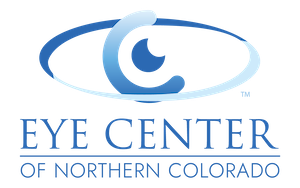When Can I Drive After Cataract Surgery?
Cataracts and driving are on the minds of many seniors. Fortunately, most of my patients can drive soon after cataract surgery.
The question of when to resume driving is an important one as many have cataract surgery specifically to improve their driving vision.
Deciding when it is safe in your specific case requires a review of a number of different factors and it is often a good idea to seek the opinion of your eye surgeon and family members to determine the proper time to return to driving.
No Driving the Day of Cataract Removal
The day of your cataract removal you will receive anesthesia so you will not be able to drive yourself home after your cataract removal procedure. A friend or family member will need to drive you home and stay with you for a while as you adjust.
No Cab Rides Home After Cataract Surgery
In the past, some would take a cab home, but recent regulations no longer allow this since the cab driver could not be anticipated to stay with you after dropping you off. I know this doesn’t make much sense after a simple surgery with minimal sedation, but the government and credentialing agencies don’t work like that. They treat all individuals coming home from surgery the same whether it was a long complicated surgery with general anesthetic or a quick procedure with light anesthetic like cataract removal.
Recovery After Cataract Removal Surgery
24 hours after your cataract removal the anesthetic is considered to be gone enough for you to accept responsibility for your actions. If your vision is good enough to drive and you are not too light sensitive, you could resume driving.
When is My Vision Good Enough to Drive?
Technically, you can drive a car with only one eye that can pass the drivers license test. From a purely visual perspective, if either your eyes can see adequately then you can drive.
Some will see great out of the eye that had surgery by the next morning while others will need several days or weeks for the swelling to subside for their best vision. If you have problems with your eyes other than cataract, then these other problems could limit your final best vision after cataract removal.
Several additional considerations other than just vision should go into your decision about driving safety.
Glasses are the Wrong Prescription
Your old glasses may not be the correct prescription anymore. Two to four weeks after the procedure, your eye doctor will change your glasses to match the needs of your new vision.
What do you do in the meantime?
Discuss this with your surgeon ahead of time so you will already have a plan. If your old glasses are close to your new prescription then some just wear them until the new glasses are made. Some have good enough vision to go without glasses.
Others have the lens removed from the glasses frame for the eye that had the operation. This allows them to see without glasses in the operated eye, but look through their glasses for the eye that hasn’t had surgery yet. You get some curious stares from friends who notice one of your lens is missing, but it works well for many patients.
Some go without glasses for the eye that has had surgery, but wear a contact lens in the eye that has not had surgery yet.
Are the Two Eyes Working Together?
After having your first eye fixed with the operation, you could have a large difference between the two eyes. This could create problems with depth perception.
If you experience this problem, it would be wise to delay driving until you adjust. If this is particularly troubling, discuss potential options with your surgeon like wearing a contact lens in the un-operated eye to even the difference or doing the second eye surgery at an earlier date.
Are you Light Sensitive?
Some patients are more sensitive to light during the early healing period after cataract surgery. We provide some wraparound sunglasses to our patients to help with this. If you step outside with those sunglasses, but still feel sensitive to the light, it would be wise to delay driving until it is comfortable.
Recovery From Cataract Surgery
Most resume driving within a few days of cataract surgery though your individual drive time could vary. If there is any question, please discuss your concerns with your eye surgeon. Happy driving!
Cataracts and Driving
Trouble with driving, especially night driving, is one of the main reasons many of my patients choose to have cataract surgery. It comes as no suprise that the timing of the restoration of driving after cataract surgery is so important to them. We are committed to helping you with your cataract and driving and will work to make sure we get you on the road as soon as possible and safe with the understanding the good vision is just part of what makes for a good driver.
If I can answer any other questions, please schedule a time to meet with me or send me a note.
